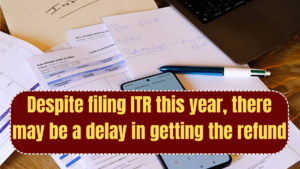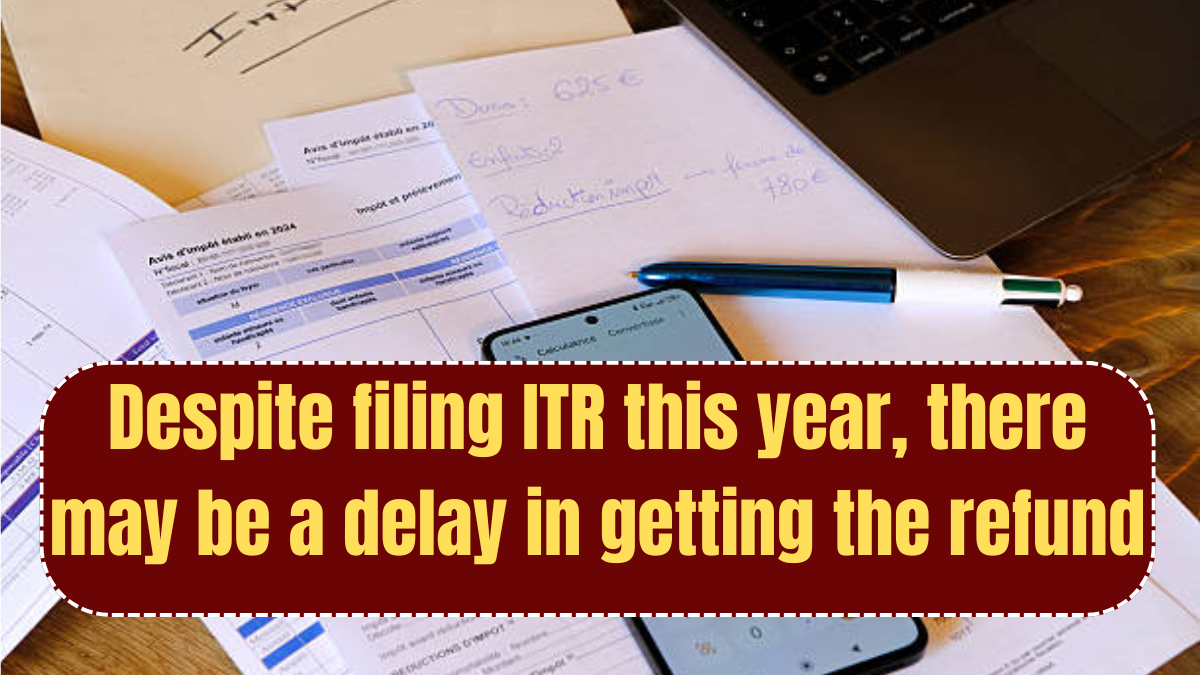As the new financial year begins, many taxpayers have already started preparing to file their Income Tax Returns (ITR) for FY 2024–25. The due date for most individual taxpayers—those not subject to audit—is July 31, 2025. While filing early typically leads to a quicker refund, some taxpayers may still experience delays in receiving their refund this year.
Let’s break down why this is happening and what you can do about it.

Early ITR Filers Usually Get Faster Refunds
Under normal circumstances, taxpayers who file their returns early often enjoy faster processing by the Income Tax Department. If your ITR has no mismatches or pending verification, the refund is usually credited to your savings account within a few weeks.
The system is designed to reward early compliance by issuing prompt refunds—but this year, there’s an exception for some.
Income Tax Department Sends Warning Emails
According to a report in the Economic Times, some taxpayers have received emails from the Income Tax Department stating that their refunds have been temporarily withheld.
The email, sent by the Deputy Director of Income Tax on March 11, 2025, mentions that the taxpayer’s return is under assessment or reassessment, and the refund will be held until this process is completed. If any past tax dues are found, the refund amount may be adjusted accordingly.
This has created confusion among taxpayers who were expecting their refunds to arrive shortly after filing.
Check Your Email for Notices from the Department
If you haven’t received any such communication, your refund is likely on track. However, if you have received an email from the Income Tax Department, it’s important to review it carefully.
Tax experts recommend logging into your income tax portal or checking your registered email regularly for any updates or alerts related to refund status.
Section 245 of the Income Tax Act Comes into Play
The department may invoke Section 245(2) of the Income Tax Act, 1961, to adjust your current year’s refund with any outstanding tax dues from previous years. What’s important to note is:
-
There is no time limit for this adjustment
-
The taxpayer must be informed before any adjustment is made
-
The refund will be delayed until this assessment or adjustment is complete
This provision gives the department the right to recover past dues by offsetting them against current refunds.
What Should You Do If You Receive Such an Email?
-
Review the notice for details of any pending tax liabilities
-
Check your tax records for past dues or assessment orders
-
Respond promptly if any clarification is required
-
Consult a tax advisor if the issue is unclear or you disagree with the adjustment
FAQs
Why is my ITR refund delayed in April 2025 even after timely filing?
Your refund might be delayed if your ITR is under assessment or reassessment. The Income Tax Department may be verifying your return or checking for past dues under Section 245 of the Income Tax Act.
What does the email from the Income Tax Department mean?
It indicates that your return is being examined and your refund will be held until the department completes its review. If past tax dues are found, your refund may be adjusted accordingly.
What is Section 245 of the Income Tax Act?
Section 245 allows the Income Tax Department to adjust your current year’s refund against any outstanding tax liabilities from previous years. This process does not require a time-bound limit for adjustment.
Will all taxpayers experience a delay in refunds?
No. Only those who receive an official email from the department regarding assessment or pending dues may see a delay. Others will receive their refund within the usual timeframe.
How can I avoid refund delays in the future?
Ensure that all previous tax demands are cleared, submit accurate returns, and regularly monitor your email and e-filing portal for updates or notices from the department.
Click here to know more.
Aanchal is a passionate writer with a keen interest in storytelling, content creation, and creative expression. She enjoys exploring diverse topics and crafting engaging narratives that captivate readers.

